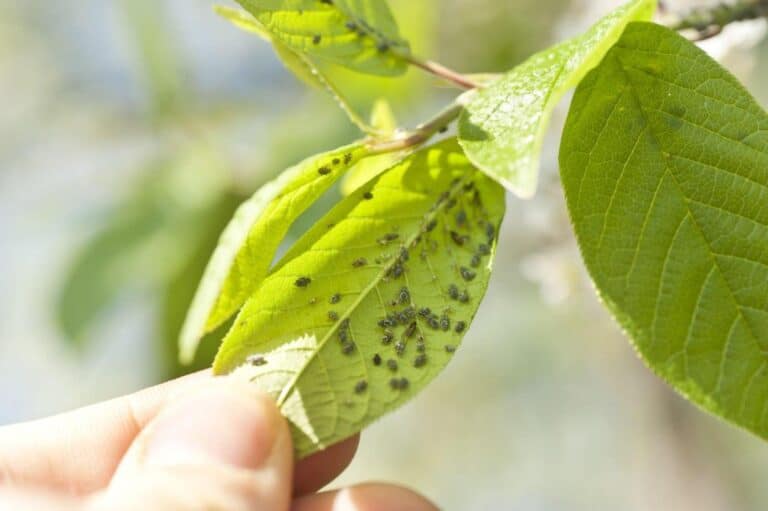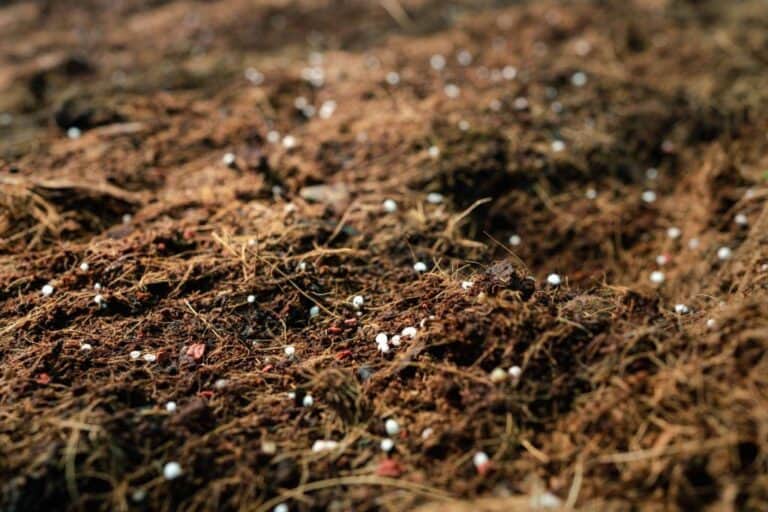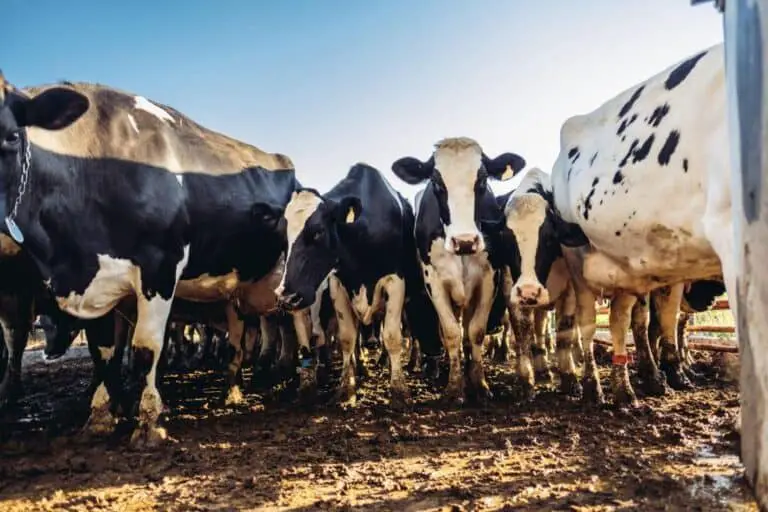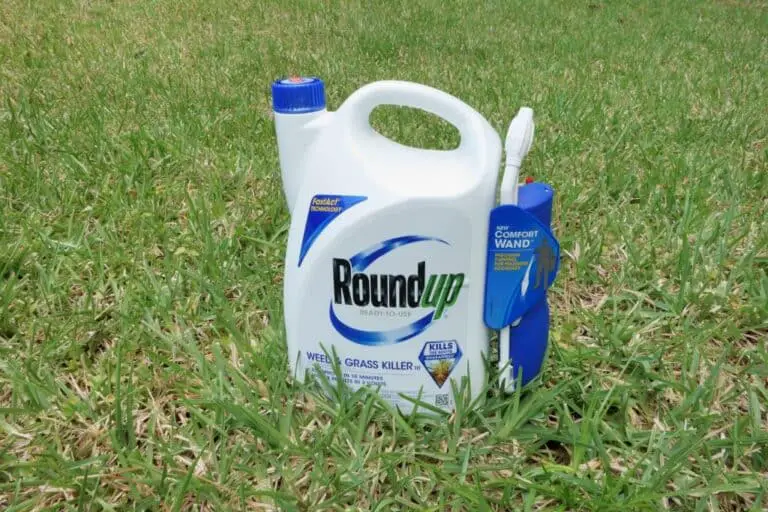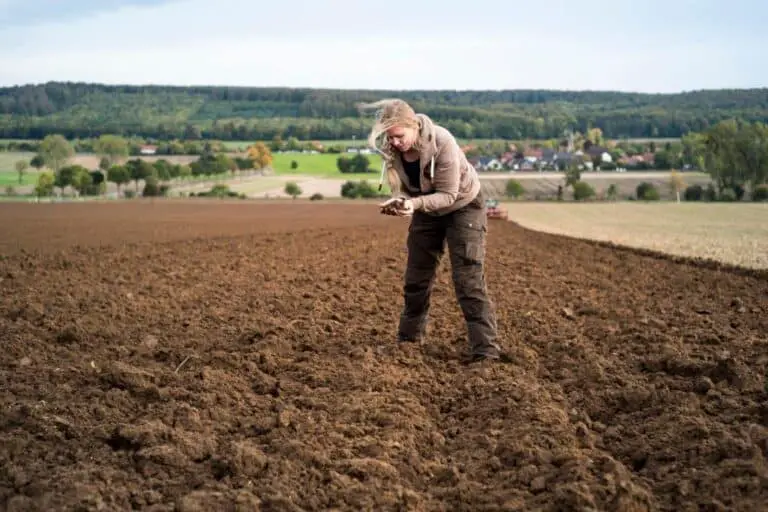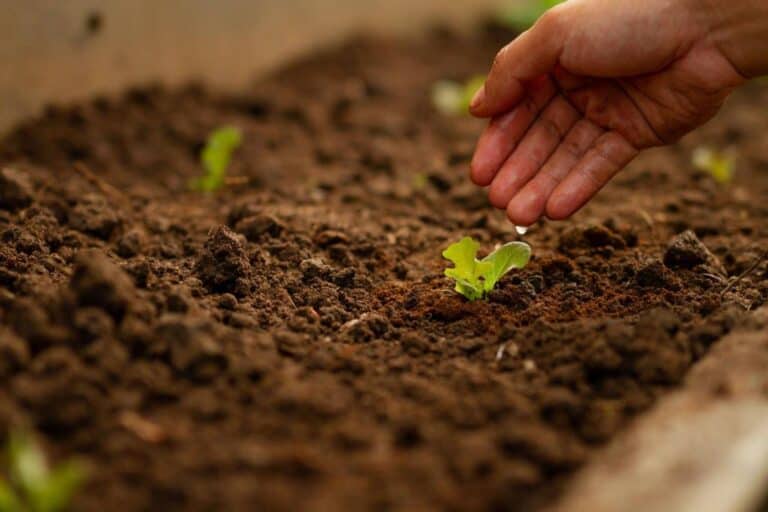Manure Compost vs. Mushroom Compost: Which Is Best for Your Garden?
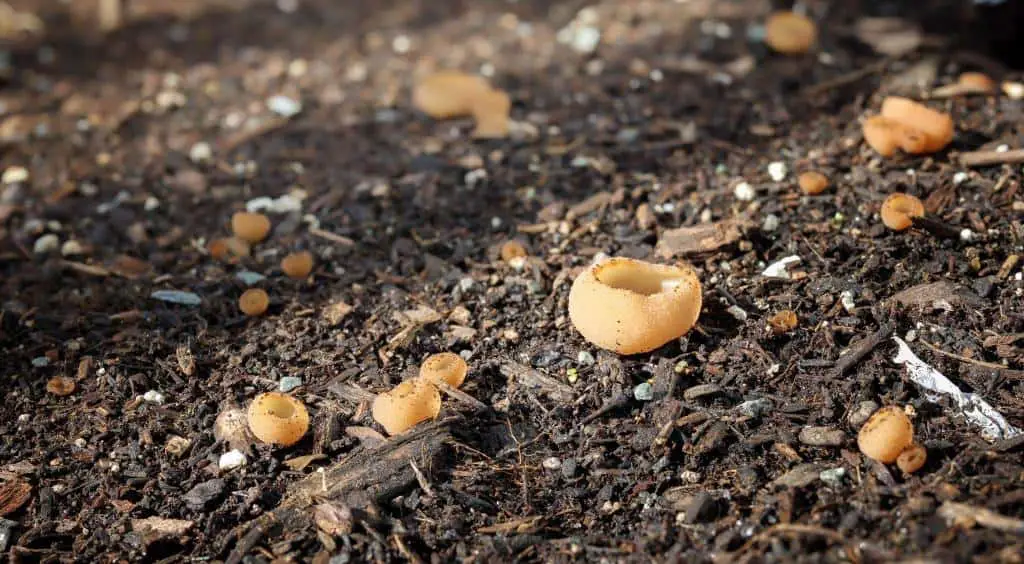
Gardening, a delightful blend of science and art, calls for decisions at every turn. One of the most crucial choices you’ll make in nurturing your garden is the type of compost to use.
It’s like picking the ingredients for a secret sauce that’ll make your plants flourish. In this botanical showdown, we’re putting two heavyweights in the ring: Manure Compost and Mushroom Compost.
But which is truly superior? In this comprehensive exploration, we’ll dissect the characteristics, benefits, and drawbacks of these compost contenders. By the end, you’ll have a clearer path to choose the compost that’ll set your garden on a journey to lush, thriving greenery. So, let’s dig in and uncover the secrets of these soil-enriching champions.
Understanding Manure Compost
Manure compost, as the name suggests, is compost made from animal manure. It’s a tried-and-true method that has been used in agriculture for centuries. Some of the commonly used manures for composting include cow, horse, chicken, and sheep manure. These manures are rich in organic matter and nutrients that provide your plants with a substantial boost.
Here’s a quick look at the pros and cons of using manure compost:
| Pros | Cons |
| High in nutrients | Requires proper aging and curing |
| Improves soil structure | Unpleasant odor during composting |
| Enhances water retention | Risk of weed seeds and pathogens |
| Supports beneficial microorganisms | Unsuitable for some sensitive plants |
Benefits of Manure Compost
- Nutrient-Rich: Manure compost is a powerhouse of essential nutrients like nitrogen, phosphorus, and potassium (NPK). These nutrients are vital for plant growth and development, making your garden plants flourish.
- Soil Structure: It aids in improving soil structure by enhancing aeration and drainage. This means your soil will be better equipped to hold water without becoming waterlogged.
- Water Retention: Manure compost is also excellent at retaining moisture. This is particularly advantageous during dry spells, as it helps keep your plants adequately hydrated.
- Microbial Activity: It fosters a thriving community of beneficial microorganisms in your soil. These microorganisms contribute to the overall health of your garden by breaking down organic matter and making nutrients available to plants.
Drawbacks of Manure Compost
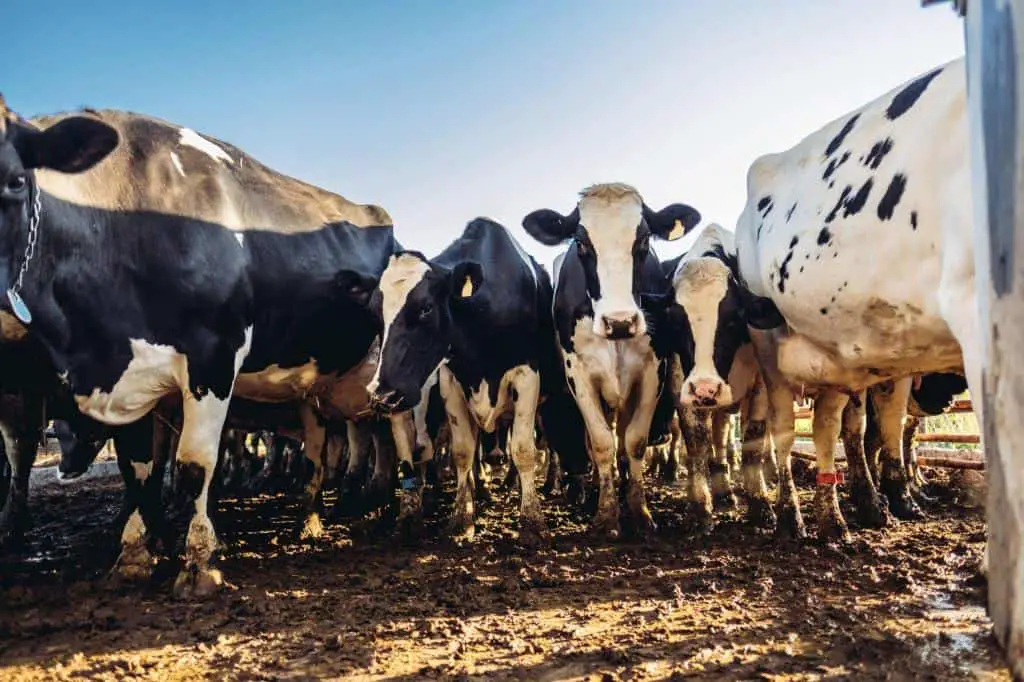
- Aging and Curing: Fresh manure can be too “hot” for your plants, potentially harming them. It needs to be aged and cured properly before use, which can take several months.
- Odor: During the composting process, manure can produce an unpleasant odor. Proper management and aeration can help control this, but it may still be an issue.
- Weed Seeds and Pathogens: Manure compost may carry weed seeds and pathogens. Ensure that the composting process reaches the necessary temperatures to kill these unwanted elements.
- Sensitivity: Some plants, like root crops or those in the nightshade family, are sensitive to high levels of nutrients and salts found in manure compost. It’s important to consider your plant choices.
See also: How to Use Manure in Raised Garden Beds?
Delving into Mushroom Compost
Mushroom compost, on the other hand, is a lesser-known but equally potent soil conditioner. This compost is a byproduct of mushroom farming and consists of a mix of organic materials like straw, peat moss, and sometimes gypsum. It’s used as a growing medium for mushrooms, and once spent, it can be an excellent addition to your garden.
Let’s explore the advantages and disadvantages of using mushroom compost:
| Pros | Cons |
| pH neutral | Lower in nutrients than manure compost |
| Weed and pathogen-free | May contain traces of fungicides |
| Improves soil structure | Initial expenses for sourcing |
| Supports mycorrhizal fungi growth | Limited availability in some regions |
Benefits of Mushroom Compost
- pH Neutral: Mushroom compost is pH neutral, making it an ideal choice for plants that prefer a more balanced soil pH. This can be particularly advantageous for crops like vegetables.
- Weed and Pathogen-Free: Unlike manure compost, mushroom compost is generally free of weed seeds and pathogens, reducing the risk of unwanted plant growth and diseases in your garden.
- Soil Structure: Mushroom compost can enhance soil structure, promoting aeration and drainage, similar to manure compost. It also helps to loosen compacted soils.
- Mycorrhizal Fungi Growth: Mushroom compost helps mycorrhizal fungi grow. These fungi live in harmony with plant roots and help them absorb nutrients.
Drawbacks of Mushroom Compost
- Nutrient Levels: While mushroom compost provides nutrients, it is generally lower in nutrients compared to manure compost. You might need to supplement with additional fertilizers for some plants.
- Fungicides: Some batches of mushroom compost may contain traces of fungicides used in the mushroom-growing process. It’s essential to inquire about the source of your compost and its treatment.
- Initial Expense: Sourcing mushroom compost can be more expensive than obtaining manure compost. However, the benefits it offers may justify the cost.
- Availability: Mushroom compost might not be readily available in all regions. This limitation can make it less accessible to some gardeners.
Comparing Nutrient Content of Manure Compost vs. Mushroom Compost
Compost, the gardener’s secret weapon, comes in various flavors, and today we’re dissecting the nutrient-rich rivalry between two heavyweights: manure compost and mushroom compost. When it comes to feeding your green companions, understanding the nutrient content is like having a treasure map. Let’s dive in!
Analysis of Nutrient Content in Manure Compost
Manure compost, true to its name, is a nutrient powerhouse. It boasts a robust cocktail of essential plant nutrients, such as nitrogen, phosphorus, and potassium (NPK). These elements are the lifeblood of your plants, fueling their growth and vitality. It’s a soil transformer, improving soil structure, enhancing water retention, and nurturing beneficial microorganisms.
However, fresh manure can be a bit too hot to handle, so it needs some aging and curing before being plant-friendly. There’s also the matter of the unmistakable aroma during the composting process. But hey, it’s the smell of future garden greatness.
Analysis of Nutrient Content in Mushroom Compost
Mushroom compost, the mysterious contender, is pH neutral, making it the soil of choice for plants seeking balance. It’s free from the drama of weed seeds and pathogens, giving your garden a serene, pest-free environment.
While it doesn’t pack as much of an NPK punch as manure compost, it excels in improving soil structure and encouraging mycorrhizal fungi growth, nature’s nutrient-delivery system. However, it might require a bit more coin and detective work to source, and its nutrient levels might not be enough for all your plant pals.
Cost and Availability of Manure Compost vs. Mushroom Compost
When it comes to choosing between manure compost and mushroom compost for your gardening needs, understanding the financial aspect and availability is crucial. Let’s break it down.
Manure Compost: When it comes to cost, manure compost is often the more budget-friendly option. It’s widely available and can even be produced at home if you have access to a reliable source of animal manure. However, it’s important to note that the cost can vary depending on your location and whether you opt for pre-packaged compost or decide to make your own. Sourcing it locally can be both economical and sustainable.
Mushroom Compost: Mushroom compost tends to be a bit pricier than manure compost due to the specific ingredients used in its production, such as peat moss and sometimes gypsum. Its availability can also be more limited in some regions. Finding a supplier may require a bit more effort, but the benefits it offers, like being weed- and pathogen-free, can justify the extra cost.
Manure Compost vs. Mushroom Compost: Which One Is Better?
So, the million-dollar question remains: which compost is better for your garden? The answer largely depends on your specific needs and preferences.
Choose Manure Compost If:
- You have access to a reliable source of properly aged and cured manure compost.
- Your garden soil is nutrient-deficient, and you need a significant nutrient boost.
- You don’t mind the initial odor and are willing to manage the composting process.
Choose Mushroom Compost If:
- You have plants that prefer a pH-neutral soil environment.
- You want to reduce the risk of weeds and pathogens in your garden.
- You’re willing to invest a bit more for a weed-free, pathogen-free compost option.
- You have access to a supplier or can produce mushroom compost yourself.
In some cases, a combination of both manure and mushroom compost might be the best approach. Use manure compost to provide your plants with essential nutrients and mushroom compost to enhance soil structure and reduce the risk of unwanted intruders.
Conclusion
Manure compost and mushroom compost each have their own unique advantages and drawbacks. Your choice should be based on your garden’s specific requirements, your willingness to invest time or money, and the availability of these compost types in your area.
Ultimately, whether you go with the time-tested manure compost or the lesser-known mushroom compost, both can work wonders for your garden. The key lies in harnessing the power of compost to cultivate soil that nurtures your plants, ensuring a thriving, vibrant garden. Happy gardening!
FAQs Manure Compost vs. Mushroom Compost: The Difference
What are the advantages of manure compost over mushroom compost?
Manure compost is often richer in nitrogen and beneficial microorganisms, making it a great choice for nitrogen-hungry plants and for improving soil structure. Mushroom compost typically has fewer nutrients.
How can I reduce the smell of manure compost in my garden?
To reduce the smell of manure compost, ensure proper aeration and turning of the compost pile. Cover it with a layer of brown materials like straw or leaves, and avoid adding fresh, smelly manure.
Can I use mushroom compost for all types of plants?
Mushroom compost is suitable for most plants but may be too alkaline for acid-loving plants like blueberries. Be sure to check the pH requirements of your specific plants.
Is mushroom compost safe for organic gardening?
Mushroom compost can be safe for organic gardening if it’s produced without synthetic chemicals or contaminants. Check the source and certification to ensure it meets organic standards.
What’s the ideal ratio of manure compost to mushroom compost in a garden bed?
The ideal compost ratio depends on your specific soil and plant needs. Typically, a 3:1 ratio of manure to mushroom compost can be a good starting point for garden beds.
Which compost is better for vegetable gardens, manure or mushroom compost?
Both manure and mushroom compost can be suitable for vegetable gardens. The choice depends on your soil and plant needs. Experiment to see which works best for your crops.
Are there any health risks associated with using manure compost in gardening?
Health risks associated with using manure compost are minimal if it’s properly composted and handled. Use mature compost, follow safety guidelines, and avoid contact with fresh manure.
Can I create my own manure or mushroom compost at home?
Yes, you can create both manure and mushroom compost at home using organic waste and the right composting techniques. It’s a sustainable way to recycle kitchen and garden waste.
How often should I apply compost to my garden soil?
Applying compost annually in the spring or fall is generally sufficient. Adjust based on your soil quality and the needs of your plants.
What should I do if my plants show signs of stress or nutrient deficiencies despite using compost?
If plants show signs of stress or nutrient deficiencies despite using compost, consider soil testing to identify specific nutrient imbalances. Adjust your compost or fertilizer accordingly, and ensure proper watering and sunlight for your plants.

